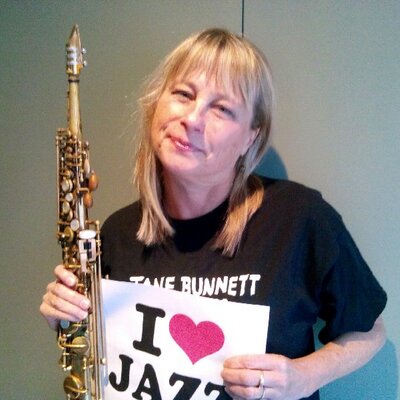
Jane Bunnett didn’t make the headlines Tuesday morning when this year’s Grammy nominations were unveiled, but the Toronto-based jazz flutist, saxophone player and pianist says her good news had a big impact all the same.
While there are 84 Grammy categories in all and hundreds of contenders vying for a golden gramophone, securing a nomination can provide a big boost for lesser-known musicians, even if they don’t get a large share of the spotlight.
“Everybody’s trying to get their music out there — and heard,” said Bunnett, who’s up for the best Latin jazz album award for “Oddara” with her band Maqueque.
Bunnett has been nominated for Grammys twice before and has won several Junos, both with Maqueque and her previous ensemble, the Spirits of Havana. She was also the recipient of the Queen Elizabeth II Diamond Jubilee medal and received the Order of Canada in 2004.
But nothing compared to the buzz around her Grammy nominations.
“There’s still lots of people in Europe who kind of know what the Juno is, but they really know what the Grammy is,” she said.
“You plateau a lot as an artist,” Bunnett added. “There’s lots of times where you say, ‘Why am I doing this? Does anyone really care?”’
Cuban-Canadian musician Alex Cuba grappled with similar questions this year, even as he grabbed his third Grammy nomination for the album “Lo Unico Constante.”
“In one hand I’m happy, excited, proud. In the other I’m scared,” he said.
After six albums and two Juno Award wins along the way, Cuba said he’s asking himself what he sees as the ultimate goal of a career as an independent artist. While he’s grateful for the accolades, record labels haven’t been knocking down this Grammy nominee’s door with offers.
“It throws me into a bit of a weird situation,” he said. “When recognition comes before popularity it can be really strange. Right now I’m like, ‘OK, what’s next? Where should I go next?”’
As Cuba debates his future, he wants to enjoy whatever opportunities Grammy awareness presents. He figures he’ll at least see a noticeable bump in album sales and streaming on music services, which could potentially translate into new fans and ticket sales.
But it remains to be seen how quantifiable another Grammy nod will be overall. Cuba said his four wins at the Latin Grammy Awards have helped elevate his Spotify numbers in Central America and South America, but it’s sometimes tougher to gain traction in the United States and Canada.
“I go into the data and see that my biggest audience is in Mexico City, for example,” he said. “I think it has something to do with events like the Grammys.”
Whether Bunnett gets a sales bump or not, she’s looking forward to another Grammy reception.
The first year Bunnett was nominated for a Grammy, in 2002, she missed half of the ceremony because her driver got lost on the way to the Staples Centre. She remembers sitting in the back of the limo crying.
The next year went better — she was seated near Bootsy Collins, who played bass for James Brown and for Parliament-Funkadelic. She kept thinking that people around her resembled famous people, and had to remind herself that she was actually in a room full of celebrities.
“You’re going… that looks like Beyonce. Well, it is Beyonce! It’s pretty wild.”